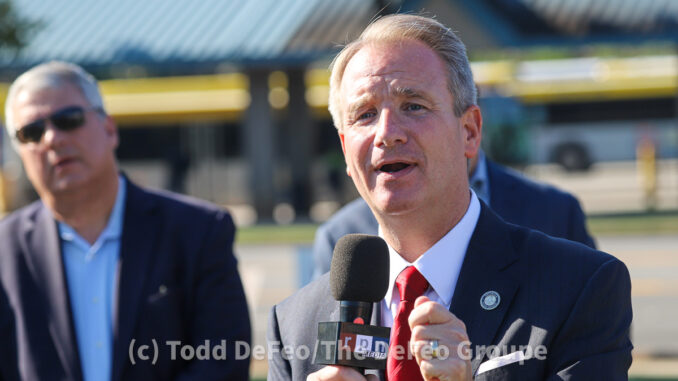
The responsible use of artificial intelligence requires the government to implement guardrails, not roadblocks, an expert told Georgia lawmakers last week.
“We’re standing at the edge of [a] new era of innovation. For some of us, we’re right in the middle of it already,” Fred Miskawi, who leads the AI Innovation Expert Services in CGI’s AI Enablement Center of Expertise, told lawmakers during a recent Georgia Senate Study Committee on Artificial Intelligence meeting. “AI enables businesses to solve complex problems faster and more efficiently than ever.
“However, without robust guard rails, this innovation can lead to unintended consequences,” Miskawi added. “So privacy, security, intellectual property rights and bias, they’re all areas that need clear frameworks. Focusing on responsible AI ensures that the systems that we deploy are trustworthy and ethical.”
AI is growing more advanced, making it harder for policymakers to stay in the loop and maintain control. The committee is expected to compile recommendations for lawmakers to consider when the General Assembly reconvenes.
Governments worldwide are grappling with regulations concerning AI. The European Union’s Artificial Intelligence Act, which took effect on Aug. 1, is touted as the world’s first comprehensive AI law.
“There are currently huge international, intergovernmental debates on how AI should be regulated, what should be the primary principles, values, and so on,” Bianca-Ioana Marcu, the deputy director for global privacy at the Future of Privacy Forum, told lawmakers.
Regardless of the regulatory framework that Peach State policymakers ponder, it should ensure human oversight.
“AI models should augment, not replace, human judgment, particularly in high-risk applications like healthcare and law enforcement,” Miskawi said. “While autonomous AI systems are advancing, human oversight is necessary to ensure that AI decisions align with the ethical standards and societal values that we uphold.”
State Sen. John Albers, R-Roswell, expressed concern about a patchwork of legislation among the states, noting that the “federal government is very slow and sometimes unable to react to something that would ideally provide us a single solution that all 50 states here would adhere to.”
“This committee was formed because artificial intelligence is literally going to be the biggest thing that happens in our lifetime, and the impacts are going to be far-reaching,” Albers said. “There’s going to be great benefits. This will be the technology that literally cures cancer and solves some of our greatest world problems, but also has significant risk.”





